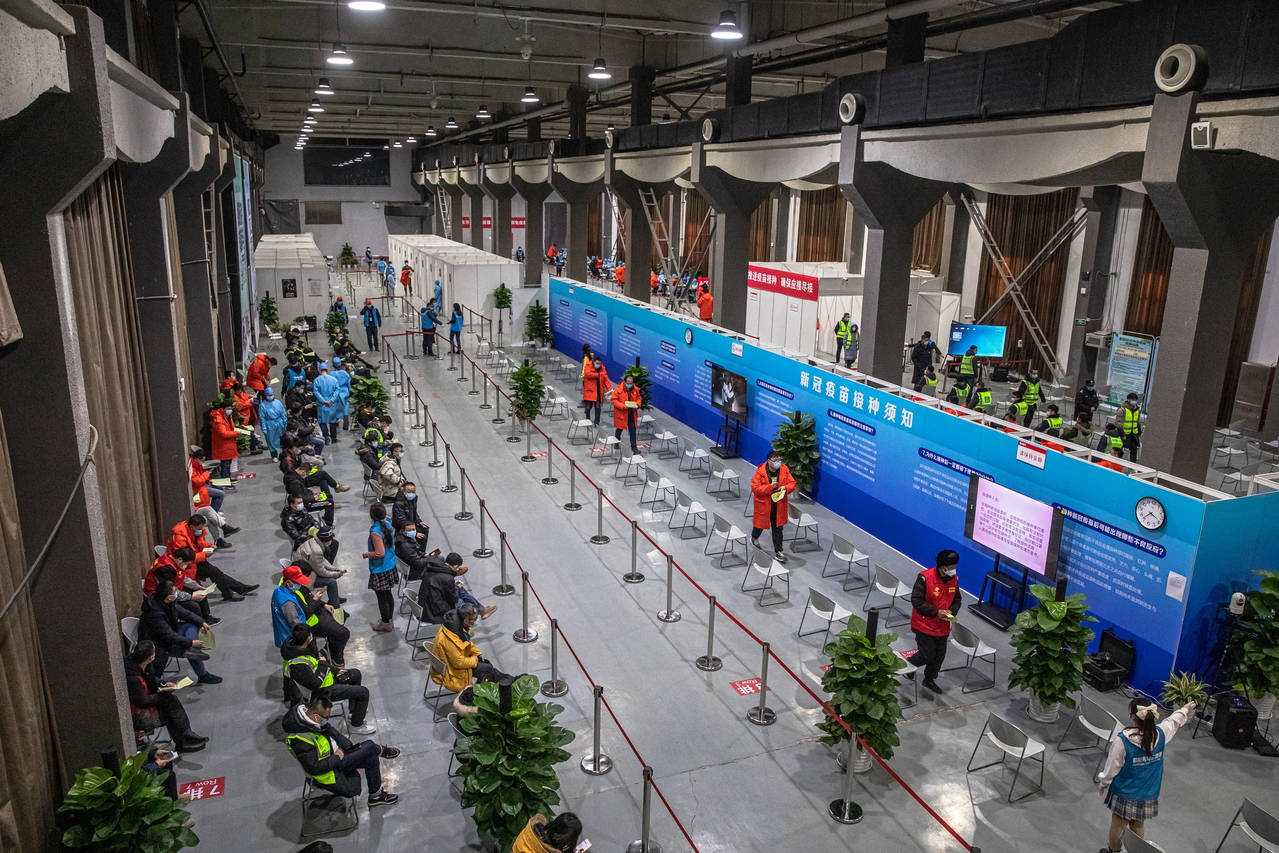Over 10 million doses of Covid-19 vaccines administered in China
Sign up now: Get insights on Asia's fast-moving developments

Beijing is feeling the pressure to inoculate as many people as possible from Covid-19.
PHOTO: EPA-EFE
BEIJING - China has administered over 10 million doses of Covid-19 vaccines across the country, health authorities said this week - with more than a million people vaccinated in the Chinese capital alone.
As its vaccination drive gathers steam, Beijing is feeling the pressure to inoculate as many people as possible from Covid-19.
It is grappling with its biggest test in months - with the disease detected recently in multiple outbreaks across its northern provinces.
State media have gone on a promotional blitz, urging people to get the free vaccines, and assuring them that they are safe and effective.
Thousands of vaccination centres have been set up across the country, where people aged 18 to 59, from nine priority groups - including healthcare and government workers, and essential personnel like public transport workers - can receive their shots for free.
China had begun vaccinating those at high-risk of infection as early as July last year, and expanded the programme to include the current targeted groups in the middle of last month.
In Beijing, more than 240 vaccination centres have been set up, where a total of between 100,000 and 150,000 are vaccinated each day, the city's health authorities said this week.
At one vaccination site - an art museum in the south of the city - people were seen trickling in and out for their jabs on Friday (Jan 15), as healthcare workers in protective gear took down their details and gave them directions.
Across China, from its rural villages to its glitzy mega cities, the same scene plays out - people are briefed on the vaccination and have to sign a consent form before they are jabbed.
There is then a 30-minute observation period before those vaccinated can leave, and return a few weeks later for a second dose.
The whole process takes about an hour.
While the health authorities said last week that vaccinations for the general public are expected to start next week, the immediate goal now is to vaccinate some 50 million people before the annual Chinese New Year travel rush, known as chunyun.
Ms Li Yaqian, who received a first dose earlier this month at a hospital in east Beijing, said she had some initial reservations about potential side effects.
"But in the end, I chose to take a big-picture perspective and get the shot. I'm choosing to believe in the science and my country's capabilities. After all, so much has been invested in these vaccines," said the 27-year-old Chinese physician.
While three vaccines - two by state-owned firm Sinopharm and one by Sinovac - have been approved for emergency use, only one of the Sinopharm vaccines has been given conditional approval for general public use.
Reservations like those held by Ms Li are not uncommon. China's vaccine industry has suffered from quality issues in the past.
Doubts over the efficacy of some of China's Covid-19 vaccines have also emerged after clinical trial results from Brazil showed that Sinovac's vaccine barely met the 50 per cent efficacy threshold for regulatory approval.
Health authorities are taking pains to urge people to get inoculated.
"At the moment, the vast majority of people in our country are susceptible to Covid-19 infection. Under such circumstances, vaccination is extremely necessary. Vaccines are the most economical and effective measure to prevent infectious diseases," said the Chinese Centre for Disease Control and Prevention's chief immunologist, Dr Wang Huaqing, last month.
State media have also run reports assuring the public that the Chinese jabs are effective, highlighting that world leaders have taken them.
Pictures of Indonesian President Joko Widodo and Turkish President Tayyip Erdogan receiving the Sinovac shot this week were widely shared on Chinese social media platforms Weibo and Douyin.
China's need to vaccinate is urgent. Dr Jin Dong-Yan, a virology professor at the University of Hong Kong, said the outbreaks in the northern provinces of Hebei, Heilongjiang, Liaoning and Shaanxi, are a clear warning.
The outbreaks have prompted some of the harshest control measures since the lockdown of Wuhan last year, after the virus was first discovered there.
As at Friday, at least 566 symptomatic cases have been discovered in Hebei province, which borders Beijing, since the outbreak began on Jan 2, and three cities there have been put on lockdown.
In the past week, 103 confirmed cases were detected in Heilongjiang province.
Dr Jin said the outbreaks would likely accelerate the vaccination drive, adding that Beijing had the capability to convince the general public to get inoculated - for instance, by putting pressure on employers to get their staff vaccinated.
"In China, the advantage is that they can quickly mobilise a lot of people and resources. As long as they can produce enough vaccines, the vaccination drive is not going to be a big issue for them," he said.


